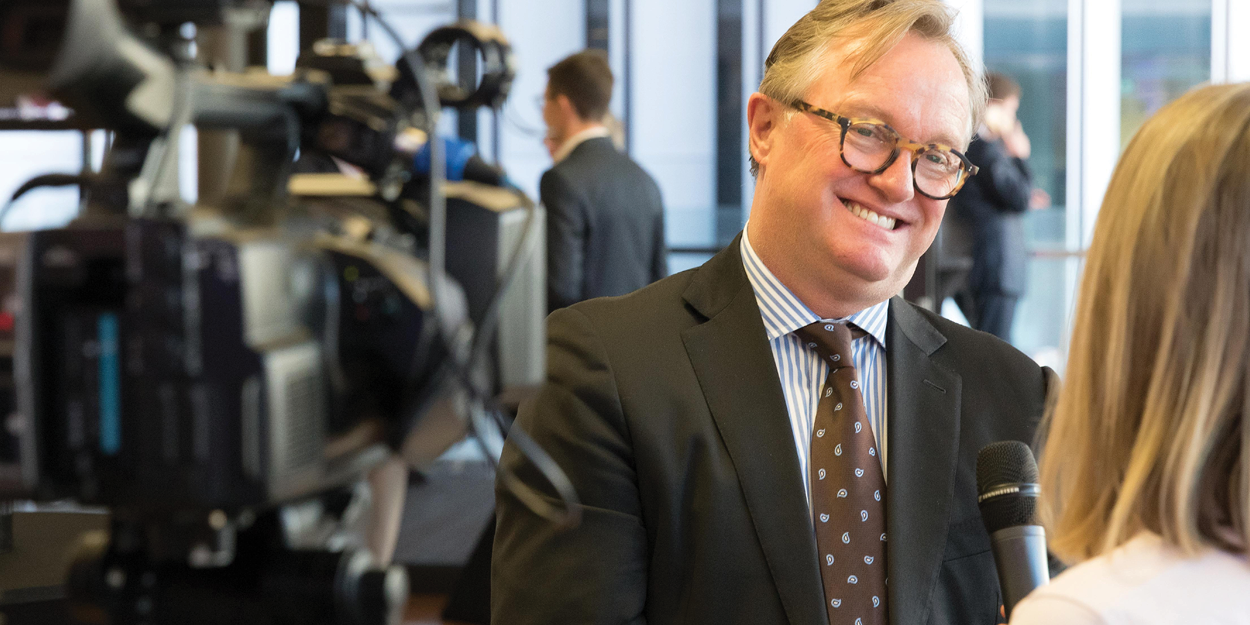
20 years of seeking solutions
For co-founder and Principal Director Professor Stephen MacMahon AO, The George Institute has always been about finding affordable, scalable solutions for the world’s biggest health problems.
Prior to co-founding The George Institute, Stephen spent a decade in research on new treatments for cardiovascular and metabolic diseases, mainly among patients in high-income countries.Towards the end of that decade, it became apparent that cardiovascular diseases in lower-income countries accounted for many more premature deaths and much more disability than in higher income countries.
“So we thought, instead of just continuing what we'd done before, which was to make increasingly smaller incremental improvements in the health of people in wealthy countries, we'd try to do something in lower-income countries where there was greater potential to make bigger health improvements for more people,” Stephen explains.
Two large five-year projects underwrote a significant part of the Institute’s early growth: ADVANCE – the world’s largest-ever study of treatments for diabetes, and PROGRESS – a ground-breaking study on the prevention of stroke. Both these studies included large numbers of people from low- and middle-income countries in Asia, where both diabetes and stroke were known to be major health problems.
“The results of these studies had a major impact on guidelines for medical care in many countries, including Australia, and we realised the power of very large studies to bring about change in health policy quickly. But once these studies ended, we also realised, that finding the money to support new projects of similar size was not going to be easy. Nor was it going to be easy to support the growth of our new centres in China and India,” says Stephen.
“So, we wondered whether a way to increase our financial resources might be to utilise the global networks we had developed for ADVANCE and PROGRESS as a research platform for clinical trials being conducted by other academic groups and industry. We saw this as a way to increase our impact as well as generate money that we could reinvest in our people and projects”.
“And that’s how George Clinical began 15 years ago. In the first year, we won just one contract and had doubts about whether we would succeed, but we did and now we have hundreds of contracts and clients from around the world. Its financial success really underpinned our global expansion and the growth in staff numbers worldwide.”
However, while the Institute’s research continued to go from strength-to-strength, Stephen and his colleagues began to realise that the Institute could do more to drive improvements in global health.
“It became increasingly clear that while evidence-based medical care was expanding rapidly in high-income countries, this was not the case in most middle- and low-income countries,” he says. “I got frustrated by the slow pace of change in regions with the greatest needs and thought that we needed to be much more part of the last mile – we needed to be directly involved in scaling up.”
“You can change clinical guidelines, you can even change national health policies, but it doesn't necessarily mean you're actually changing health care and having a real impact on people’s lives.”
So, the Institute identified two areas where there were significant unmet needs: the availability of affordable innovative drugs treatments for chronic diseases, and medical technologies designed specifically to support the management of chronic diseases in resource-poor settings.
“We started thinking about different ways by which we could provide better treatment for the most common serious chronic diseases affecting low- and middle-income countries, where there were not enough skilled medical professionals to meet population needs,” Stephen says.
“I guess the light bulb moment was recognising that we had figured out how to run a large clinical trials business, and therefore maybe we could also develop businesses around innovative drug treatments and digital health technologies,” he explains.
An umbrella company, George Health, was established in 2014 and today comprises of four divisions: George Clinical providing clinical trial services; George Medicines developing innovative, affordable drug treatments; George Health Technologies developing digital health tools for the management of common chronic and infectious conditions; and Ellen Medical Devices developing the world’s first truly affordable dialysis system.
“These four divisions will not only provide financial returns to the Institute, but they also allow us to control the scale-up and impact of the healthcare solutions our research generates,” Stephen says. “We’re not alone in using ‘social business’ models to deliver benefits to low- and middle-income countries – there’s growing global recognition that it’s important to leverage private sector resources and expertise to maximise impact. We are believers in ‘profit with purpose’.”
When asked which of the Institute’s achievements he is most proud of over the years, Stephen is clear it’s all about impact.
“We've fundamentally changed how people think about the treatment of many common serious conditions such as heart disease, stroke, kidney disease and several other critical conditions – not just in high-income countries, but in low- and middle-income countries as well,” he says. “Our research will continue to change thinking about the control of the world’s biggest killers and our social enterprises will provide specific scalable solutions.”
Looking ahead, Stephen sees many challenges that still need to be addressed, such as the underrepresentation of women in research, inequity in access to effective affordable health care, and the emergence of a new epidemic characterised by multiple co-existing chronic diseases, to name just a few.
“We need to move to understanding that medical care isn't just about treating individual diseases in isolation, it's about treating patients and considering of all their healthcare needs and preferences,” he says.
“Increasingly, all around the world, any person with any one type of chronic disease will almost certainly have others, so we need to be able to manage multiple diseases simultaneously, taking full account of patient priorities. The George Institute aims to play a key role in providing the evidence about how best to do that.”
Celebrating 20 years: Stephen's top moments
- Realising the vision: “From three people in an abandoned nurses’ home to where we are now – every day of my life, I can't quite believe it, and I think how did it happen? I feel tremendously privileged to have played a role together with so many other extraordinary people.”
- Harnessing the private sector: “We saw there was an opportunity to use a ‘profit for purpose’ model to raise investment capital for businesses that will drive improved health outcomes by creating solutions that are affordable for those in need, while also providing the financial returns required by investors.”
- Capacity building: “We've trained a lot of people in India and China and there are many who we recruited as PhD students or post-docs who are now in senior roles there. I think that’s what’s different about the Institute – we have a permanent presence in many of the countries in which we work, and we don’t just fly in and fly out.”


